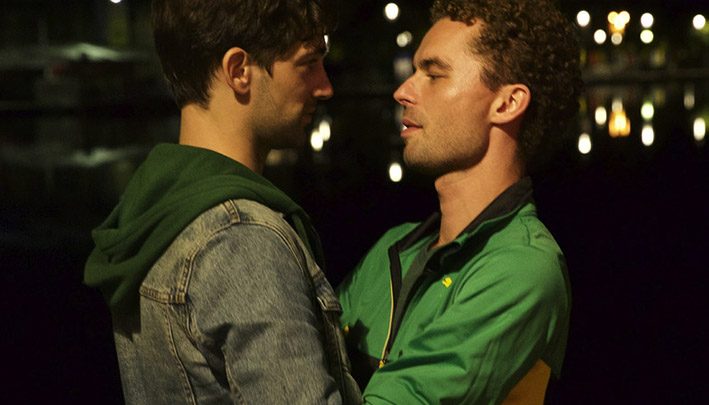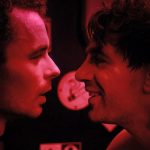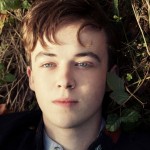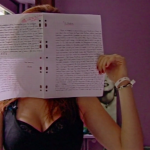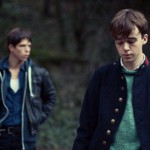Watch Theo and Hugo on FilmDoo
Opening with an almost 20-minute long, dazzlingly shot orgy in a darkly lit sex club, Olivier Ducastel and Jacques Martineau’s Theo and Hugo (aka Paris 05:59, aka Théo et Hugo dans le même bateau) uses its provocative intro as the jumping-off point for a long, contemplative discussion on love, life and HIV. Shot in real time, we observe the film’s two young leads, Geoffrey Couët (as Theo) and François Nambot (as Hugo), as they emerge from the dream state of the sex club to face the baggage of the real world with the revelation that one of them (and perhaps now both of them) carries the aforementioned virus. From here, they spend the night wandering the streets of Paris together, prolonging the intimacy of their sexual encounter with an extended meeting of words.
Speaking to FilmDoo, actors Geoffrey Couët and François Nambot reflect on their experiences starring in this bold, introspective work.
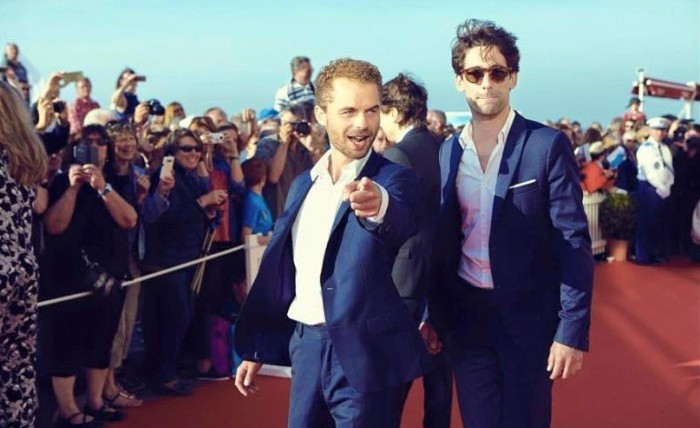
What originally interested you about this project and these characters?
GEOFFREY COUËT: From the first reading of the script, I was moved by Jacques Martineau and Olivier Ducastel’s poetry, but also by the political commitment of the film. It reminds us all that unfortunately this virus exists, but fighting against it is possible. We need to keep passing on this message. I liked Theo’s character because he is an introvert: someone secretive, very much in control – far from my own nature. I find the ‘less outside, more inside’ way of acting interesting and I wanted it to guide me for Theo. While discovering him throughout the script, I felt empathy and affection for this character.
FRANÇOIS NAMBOT: What first attracted me to this project was the opportunity to work with two directors that I like and admire. I know their cinema well and we found a common interest in Jean-Luc Lagarce (a great French playwright). As a young actor, it’s a great honour to get to work with them. The plot and the character of Hugo came to me very quickly, as I play a young man my own age, who lives in the same city that I do. The risk of exposure to AIDS concerns everybody, and particularly young people. The tragedy he lives during this night with Theo could happen to a lot of young people. And since I am a romantic at heart, I was obviously touched by the love story.
Did the two of you have much of a chance to get to know each other before shooting?
GC: Before the shoot, Jacques, Olivier, François and I met several times. We then talked about everything and established a bond of trust and goodwill. François and I immediately knew that we had to work together on these roles, that we had to protect each other if we wanted to live up to the script. And that’s what we did.
FN: I met Geoffrey at the audition. We had never met before. We trusted each other right away; I have a very nice memory of our audition, and Olivier and Jacques were won over by our duo. The four of us then met up to discuss the script that they sent us. We spent a whole afternoon discussing the film, but also getting to know each other. When they finally decided to make the film with us, we met up several times per week until the beginning of the shoot, to go over the script again and discuss all the elements we were struggling with.
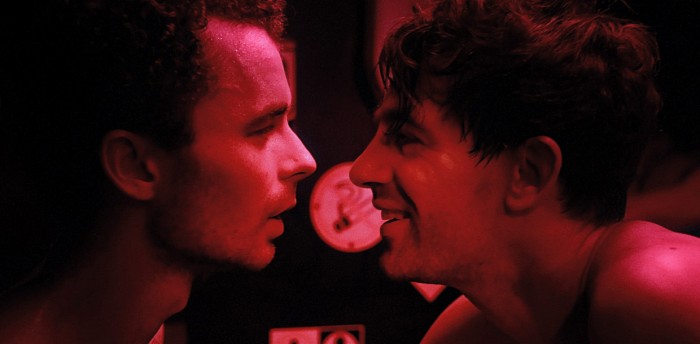
Before filming began, what were your initial feelings about the very explicit nature of the opening scene in the sex club?
GC: It’s unusual to read a sex scene that is so precise and without taboo. Thus, at the first reading, some words stood out and put the rest in the background: ‘blowjob’, ‘orgasm’…But I quickly understood that the other words were just as important: ‘amazed’, ‘profound’, ‘fascinated’…which turned it in the end into a pure acting scene – a true acting challenge – and not just a simple sex scene.
FN: In the script, this scene was very explicitly described. Every single gesture and look was detailed, so it was easy to imagine what it would look like on a screen. At first I was somewhat taken aback, but I kept on reading and the script led me to this love story, so I did not look back on this first scene. I wondered for a while about the image such performances would convey, but I knew it was going to be directed by compassionate filmmakers so I saw it was a true and beautiful artistic act.
What was the atmosphere like on set for this first scene?
GC: The atmosphere on set was incredible! François and I were extremely prepared and the extras were fully committed…it flowed naturally. It was a surreal scene, it felt out of time and space, and these four days of shooting went by very quickly. Once it was done, we realized we’d met the challenge.
FN: Hilarious and focussed at the same time! In the morning of the first day, when all the extras and us had to get naked to shoot the scene, everybody felt a bit uncomfortable. But very quickly, the atmosphere became relaxed and everybody’s attention was focussed on work. I have very fond memories of these days even though it was also challenging because the days of shooting in this dark and hot basement were long and intense.
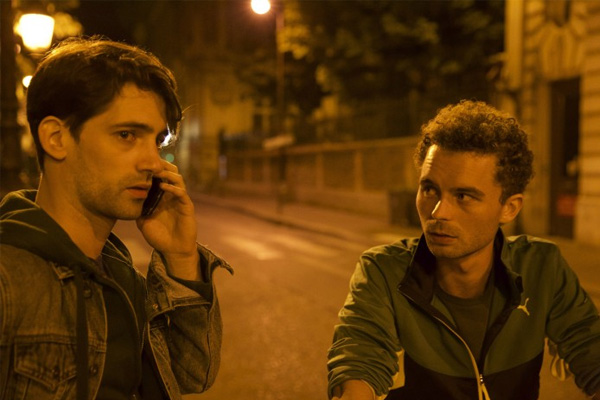
Did you encounter any problems shooting on the streets of Paris late at night?
GC: Paris by night is full of contrasts; we were all alone yet had surprising encounters, just like in the film…Night owls are pretty interesting!
FN: We didn’t really have any problems. We shot the film in August and Paris is practically deserted at that time. We had a small crew, so we were discreet. We never had to block any streets. Everything went by quickly and pretty easily. Alright, sometimes we did have to wait for some drunk people to walk away in order to start shooting again. Shooting by night is quite a special event, as our life rhythm is off beat, but it’s also very pleasant to shoot a film when everybody’s asleep.
Was there any improvisation in your scenes together?
GC: The scenario was very precise and we shot the film fast, so there wasn’t much room for improvisation. The only scene we improvised is the one at the hospital. Claire Deschamps (who plays the intern) is a real doctor, so we just had to follow her questions and the medical protocol. Shooting this particular scene was overwhelming because we weren’t really acting – only listening and responding. That was a beautiful and intense experience during the shoot. I think that’s one of Jacques and Olivier’s great strengths: coming up with the idea of shooting that scene in this specific way.
FN: Indeed, there wasn’t much room for improvisation. The scene at the hospital with the young doctor was described but not exactly written, mentioning only prompts for dialogue. Claire truly led the scene and Geoffrey and I only reacted to what she was saying. That’s one of the most memorable moments I have from the shoot; it was as if we were not acting anymore. We were only Geoffrey and François, facing a doctor to talk about a serious situation we got ourselves into. It was really out of this world. And Claire is amazing!
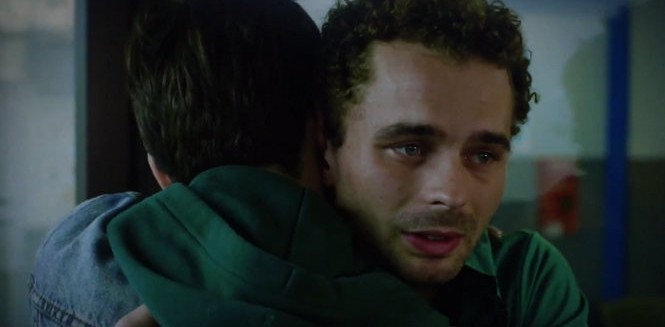
What, to you, is the most important message that viewers can take away from this film?
GC: Falling in love is a risky business, but it’s so worth it!
FN: That we must dare to fall in love! Anywhere! And that it’s better to accept having to wear a condom than putting yourself in danger.
Do you have any future projects lined up?
GC: I am currently working on several theatre projects, I’m waiting for the next shoot and I’m considering “Pounding the Pavements, Beating the Bushes, Fighting the Floods”!
FN: I’m currently in the play, The Game of Love and Chance by Marivaux, until October here in Paris, followed by The Two-Headed Eagle by Jean Cocteau in January. I’ve also met many film and stage directors thanks to the film and we received the best acting prize in June at the Cabourg Film Festival. I want to do many different things, all just as bold as Theo and Hugo!
Watch Theo and Hugo on FilmDoo.com.

